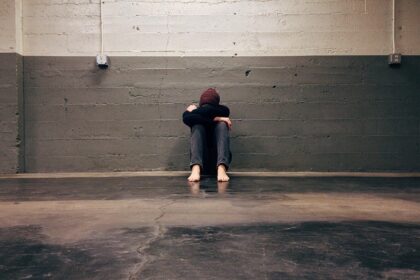How to Beat Insomnia
Most of us have a bad night’s sleep every now and again but if you suffer from insomnia, this is the norm rather than a one off.
Sleep is really important for helping your body to restore energy levels, repair itself and regulate metabolism. If you’re struggling to get a good sleep most nights, it can have a really detrimental effect on you day-to-day life and affect your ability to concentrate and perform well.
A lot of people with insomnia start to believe that they will never get a proper night’s life again and this can make you scared to go to bed at night for fear that you won’t get to sleep. This creates anxiety that makes it even harder to sleep so it’s all too easy to get caught up in a vicious cycle with your sleeping patterns.
Many of my clients have found themselves stuck in this cycle and have successfully overcome it so I wanted to write this post to give you hope that you can break out of it too!
What Counts as Insomnia?
Symptoms of insomnia can include:
- Having trouble falling asleep
- Waking up a lot during the night and struggling to get back to sleep again
- Waking up early in the morning and not being able to go back to sleep
- Feeling tired, snappy and unable to focus or concentrate during the day (because of your sleep patterns)
Insomnia can be either short term or long term. Sometimes, insomnia can be a problem that only lasts a few weeks but if it goes on for longer than 4 weeks, it’s classed as chronic.
Why Does Insomnia Happen?
There can be lots of different reasons for insomnia, including:
- Physical problems that disrupt your sleep or stop you going to sleep such as arthritis, headaches or back pain
- Depression, anxiety and other mental health problems
- Big life changes such as moving house, relationship breakdown, starting a new job, bereavement
- Disruptive sleep environment that includes noise, light and other factors that make it more difficult to get to sleep
5 Tips for a More Natural Sleep
Depending on the underlying factors for your insomnia, you may be able to improve the situation with some self help measures, including:
Take a warm bath
A warm, relaxing bath can raise and then lower your body temperature. This is the same type of process that happens when your body is preparing to fall asleep.
Ditch the technology before bed
Using your laptop, tablet or mobile phone or watching television before bed can disrupt the amount of melatonin that your brain produces and this can have a knock on effect on your sleep. Under normal circumstances, your brain will produce a good amount of melatonin once it gets dark and this is the signal that it’s time to prepare for sleep. “Blue light” from technology screens means that less melatonin is produced and it’s more difficult to go to sleep.
Get into a sleep pattern
Sticking to a set time for going to bed can help your body to set an internal body clock that can make it that little bit easier to get to sleep. On a similar note, getting up at a similar time every day can mean that your body’s sleep patterns are less likely to be disturbed.
Avoid caffeine before bed
Having tea, coffee or caffeinated drinks in the run up to bedtime can be a bad move. This is because caffeine is a stimulant and it encourages the brain and nervous system to stay alert.
How Hypnotherapy Works for Insomnia
If your insomnia is chronic and the tips in the previous section don’t do much for helping you to get to sleep, my Solution Focused approach to hypnotherapy can help you to retrain your mind to relax into sleep.
A big part of this involves learning relaxation techniques to help you to physically relax your body. Once you know the ways to do this, it can be very quick and easy to prepare your body for sleep.
Under hypnosis, your subconscious mind is very susceptible to taking positive suggestions on board. These suggestions can be invaluable in the future for encouraging you to drift into sleep even if you wake up during the night.
If you feel you’d benefit from seeing if hypnotherapy is the solution to your insomnia, get in touch with me today to take the first steps toward changing your life.










